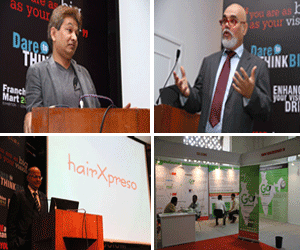The recent sting on black money in banks has left the government, the banking regulator and the banks involved in a tizzy. According to the sting, three private banks agreed to convert black money in cash through banking channels. What was more shocking was the relative ease with which the bank staff agreed to carry out the process and their admission that it was a common phenomenon.
Two key areas have come out as possible loopholes in the system. The first being demand draft. It is noticed that walk-in customers or customers who do not hold an account with the bank walk in with cash and get it converted to a demand draft. Making a demand draft does not attract KYC norms and this is one loophole which seems to be exploited.
The second problem area is insurance product. Any cash deposit below Rs. 50,000 does not attract KYC norms and this seems to be one way to convert black money to white. However, Rs. 50,000 is a small amount when it comes to the malaise of black money and the government should be more wary of the high-value transactions which take place. For example a Rs. 50,000 payment to buy a one-time premium insurance product should not be so much of a problem. But if Rs. 50,000 premium is being paid every month, a red flag should be raised somewhere.
We like it or not, India is a cash country and a large part of our agrarian economy is based on cash transactions. We cannot do away or ban cash transactions. Also what matters is the large transactions of black money worth crores which continue to be done outside the banking system through channels like hawala. It would be stupid for someone with Rs. 100 crore of black money to walk into a bank and expect it to be converted to white. Meanwhile for the banking channel KYC norms needs to be made stringent so that money can be traced back to its origin.































 +91 9909960054
+91 9909960054